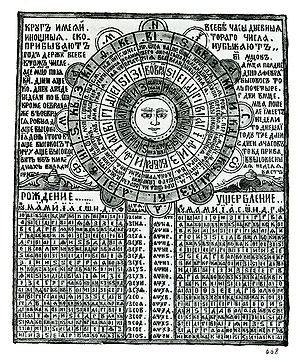So nature has provided us with a year and a month that refuse to divide evenly into each other. To make it worse, neither is a whole number of days. At the same time it has given us the unquenchable desire to find order and symmetry in this mess. How are we to square the wobbly ellipse?
Well I thought long and hard about this a couple of years ago, and something struck me. The real lunar month is very close to being 29.5 days long. If we had 29.5-day months, every other one would begin at midday rather than at midnight. And while that would be kind of cool, I predict it would quickly drive people nuts.
So why not have alternating calendar months of 29 and 30 days? That way they’ll stay in step with the real ones – starting when the moon is new, ending as it fades out – without being too different from our current system.
But twelve of those only add up to 354 days, falling short of a full solar year. That would leave us with a situation not unlike the Muslim lunar-only calendar, with annual events coming around eleven days earlier every time. Which may be all right in climates without a lot of weather, but we want a calendar that stays in time with the seasons.
For this, we need an extra month. Not a silly mini-month like February, but a full-length one so that we stay in sync with the lunar cycle. What will we call it? Well, modesty forbids I suggest you name it after me. So until someone else suggests that, let’s just call it Etc. As in November, December, Etc. The trick is that this month doesn’t occur every year, but only as necessary – which will be almost (though not always) every third year. Its insertion will make sure that the other months keep falling at the same time of year, and so have the same weather, as we’re used to. Not precisely of course, but weather is not precise.
Thus we get all the advantages of our current solar calendar, plus the natural rhythms of the moon, and everything stays in tune. Quite brilliant, eh? More details tomorrow.
Or the day after.
Related articles
- Happy Same Year (i.doubt.it)
- Rip Up That Calendar (i.doubt.it)


